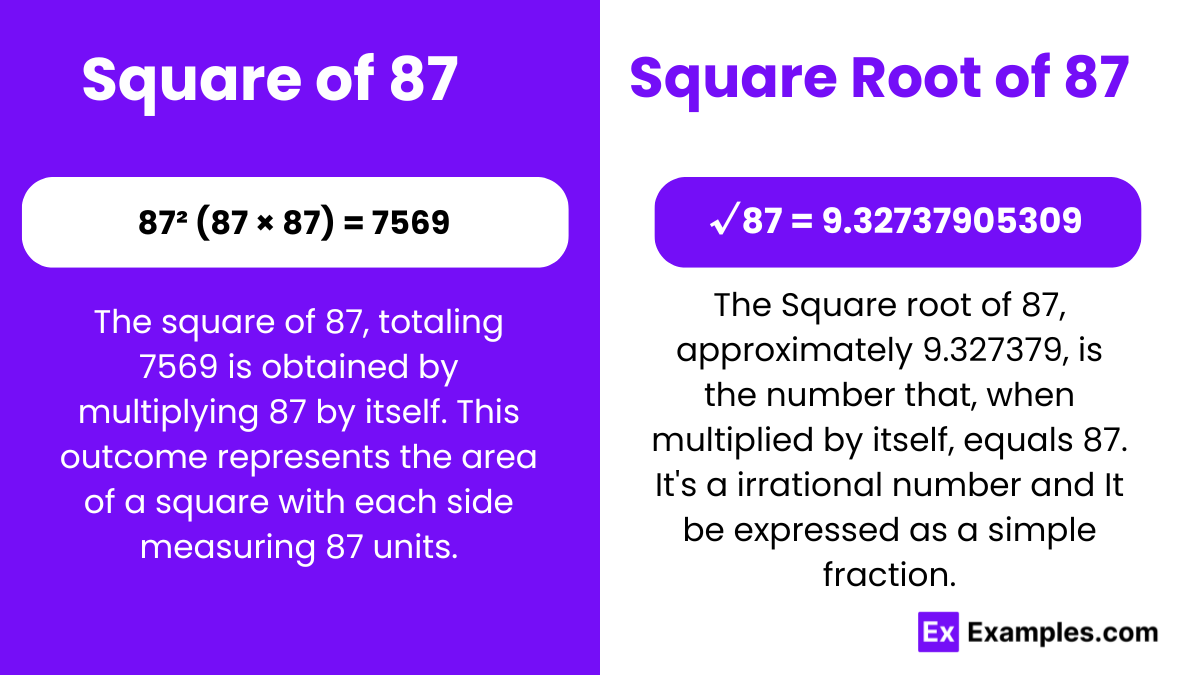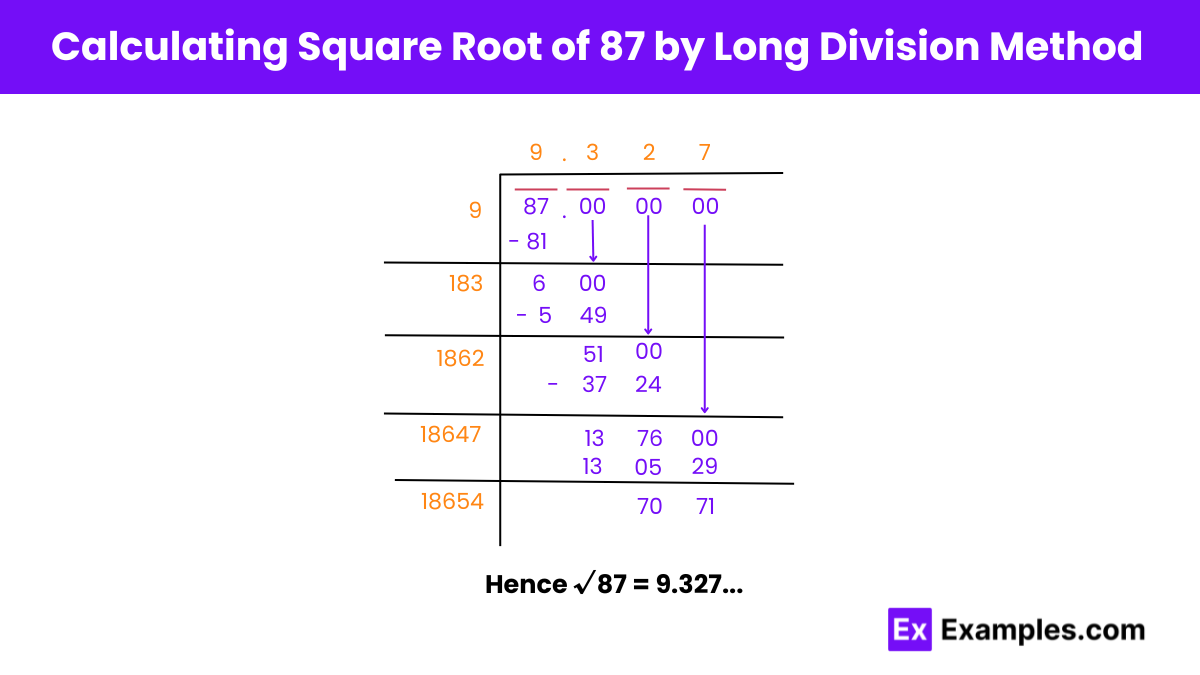What is the square of 87?
7509
7569
7629
7689


Within algebraic mathematics, squares and square roots are fundamental concepts. Squaring a number, as seen with 87 (87² = 7569), involves multiplying the number by itself and is crucial for exploring rational and irrational numbers. Rational numbers can be expressed as fractions of integers, while irrational numbers cannot. Understanding these basics enriches mathematical comprehension and reveals intricate relationships and patterns.
The square number of 87, a fundamental mathematical concept, yields 7569. This operation of multiplying a number by itself is essential for algebraic exploration and understanding properties of numbers, both rational and irrational. It helps reveal mathematical patterns and relationships.
The square root of 87, another fundamental mathematical concept, is approximately 9.32737905309. This value represents the number which, when multiplied by itself, equals 87. Mastery of square roots is crucial for understanding algebraic relationships and properties of both rational and irrational numbers, facilitating problem-solving across diverse domains.
Exponential Form: 87^½ or 87^0.5
Radical Form: √87
Irrational numbers cannot be expressed as a fraction of two integers and their decimal representations neither terminate nor repeat. Thus, √87 cannot be expressed as a simple fraction, and its decimal representation continues infinitely without repeating.
A rational number is any number that can be expressed as the fraction of two integers, where the denominator is not zero..

Pair the digits of 87 (87.000000) and find the largest number whose square is ≤ 87.
9 × 9 = 81. Place 9 in the quotient and subtract 81 from 87 to get 6.
Double the quotient (9) to get 18.
Bring down the next pair of zeros, making the new dividend 600.
183 × 3 = 549. Place 3 in the quotient.
Subtract 549 from 600 to get 51.
Bring down the next pair of zeros, making the new dividend 5100.
1862 × 2 = 3724. Place 2 in the quotient.
Subtract 3724 from 5100 to get 1376.
Bring down the next pair of zeros, making the new dividend 137600.
18647 × 7 = 130529. Place 7 in the quotient.
Subtract 130529 from 137600 to get 7071.
Quotient now reads 9.327.
Hence, √87 ≈ 9.327.
A perfect square is a number that can be expressed as the product of an integer with itself. For example, 9 is a perfect square because it equals 3 × 3. However, 87 cannot be expressed as the product of two equal integers, so it is not a perfect square.
The square root of 87 cannot be simplified further because 87 is not a perfect square, and its prime factors do not form pairs to simplify under the square root.
The number closest to the square root of 87 is 9.
The prime factors of 87 are 3 and 29.
The square root of 87 is a non-terminating, non-repeating decimal.
Text prompt
Add Tone
10 Examples of Public speaking
20 Examples of Gas lighting
What is the square of 87?
7509
7569
7629
7689
Which of the following is closest to the square root of 87?
9.2
9.1
9.3
9.4
If x² = 87, what is x?
9.2
9.3
9.4
9.5
Simplify √87 to its decimal form.
9.32
9.33
9.34
9.35
What is (87)²?
7500
7550
7569
7580
Find the approximate value of √87 to two decimal places.
9.31
9.32
9.33
9.34
Which number is closest to 87 but not a perfect square?
85
88
90
93
What is 87 raised to the power of 0.5?
9.2
9.3
9.4
9.5
Calculate 87 × 87.
7500
7550
7569
7580
What is the square root of 87 rounded to the nearest integer?
9
10
11
12
Before you leave, take our quick quiz to enhance your learning!

